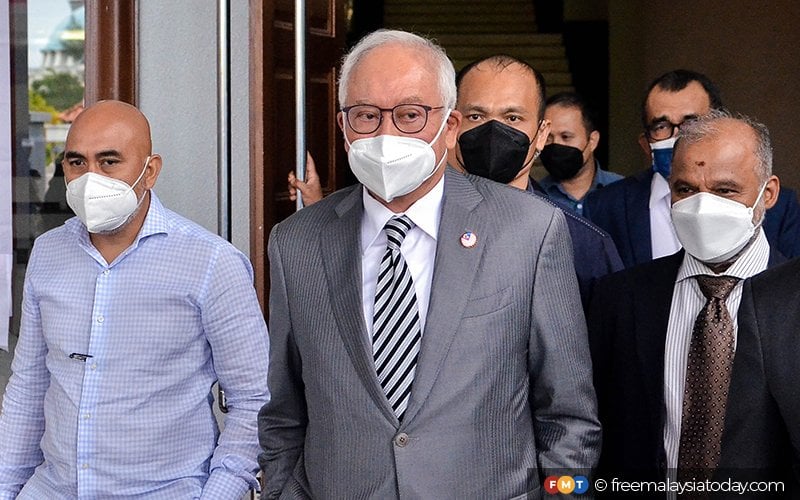
PETALING JAYA: Umno is pushing for its former president, Najib Razak, to be granted a royal pardon after his bid to get his conviction and sentence in the SRC International case reviewed fell through.
The former prime minister, who is currently serving a 12-year prison sentence, intends on using the dissenting judgment in his application for the pardon.
FMT takes a look at the Pardons Board and its role.
The law and the Pardons Board
Each state has its own Pardons Board, appointed by either the sultans or governors.
The only exception is the Federal Territories, where members are appointed by the Yang di-Pertuan Agong. Prime Minister Anwar Ibrahim also sits on the Federal Territories Pardons Board as the Federal Territories comes under the purview of the Prime Minister’s Department.
Who’s who on the board?
The Pardons Board consists of five members, namely the attorney-general, the chief minister or menteri besar, and a maximum of three other members appointed by the King or the state ruler.
While it is not specific who can sit on the board, the Federal Constitution stipulates that an MP or assemblyman is allowed to do so.
Appointed members can only serve three years, although they may be reappointed to the post by the King or the state ruler.
However, the identities of those appointed to the board are kept confidential.
What they do
A source familiar with the matter said the board members would meet to discuss the application of a convict who seeks a pardon.
The source, who spoke on condition of anonymity, says the attorney-general will first present the application at the board’s meeting, which can only be held in the presence of the Yang di-Pertuan Agong or the state ruler, who presides over it.
The members will then provide their views on granting the pardon after taking into account the views of the attorney-general.
What else you need to know
Philip Koh, an adjunct professor at Universiti Malaya and Monash University Malaysia, said the deliberations and process of the board’s decision are secret .
“In a constitutional monarchy, the office of His Majesty must not be mired into political thicket involving controversies surrounding pardons,” he said.
Koh also said whether weight is to be given to dissenting judgments or any views are all within the purview and authority of the board.
The attorney-general has the authority to take into consideration the final decision of the Federal Court, including the dissenting minority.
“Consideration must also be given to the fact that the exercise of royal pardon must not be sullied by controversies and impair the legal and moral legitimacy of the majority of the judges who held that the conviction has been rightfully entered,” he said. - FMT


No comments:
Post a Comment
Note: Only a member of this blog may post a comment.